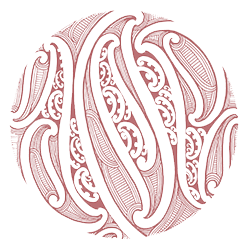
Ngā Kete

Nā tō rourou, nā taku rourou ka ora ai te iwi
With your food basket and my food basket the people will thrive
Ngā kete is a place for information about kaupapa Māori psychology, bicultural issues, cultural competence, and Māori psychology workforce development.
Māori psychologists have their own website: He paiaka totara which also has a number of resources.
Find out more about the National Standing Committee on Bicultural Issues (NSCBI) and the NZPsS commitment to biculturalism.
For more information on current work being done by NSCBI see the NSCBI Annual Report for 2023-24.
Link to all bicultural articles printed by the NZ Psychological Society in various publications over the years.
Scholarships
Karahipi Tumuaki- The President’s Scholarship – Closing Date 1 June 2025
The Society offers the Karahipi Tumuaki President’s Scholarship which recognises research that is Māori centred and of value to the Māori community. The Scholarship is valued at $5000 plus one year’s free membership of the Society. If the recipient is a Full Member of the Society, the subscription fee will be waived for one year. If the recipient is not a member, they will receive a year’s free subscribership to the Society. This scholarship is offered each year.
Download Karahipi information
Download Karahipi application form
 Aryan is of Ngāpuhi (Ngāti Mōrewa, Ngāti Rangi), Ngāti Porou (Ngāti Kohoni), Ngāti Wai (Te Uri o Hikihiki), Te Aitanga-a-Hauiti (Ngāti Konohi) descent and is enrolled in a Doctorate of Clinical Psychology programme at Massey University. Her doctoral rangahau explores the hauora benefits and therapeutic applications of taonga pūoro through a mana wāhine lens. o my knowledge, this is the first doctoral study to conduct a broad, systematic, qualitative investigation of this topic from a combined mātauranga Māori and psychological viewpoint.
Aryan is of Ngāpuhi (Ngāti Mōrewa, Ngāti Rangi), Ngāti Porou (Ngāti Kohoni), Ngāti Wai (Te Uri o Hikihiki), Te Aitanga-a-Hauiti (Ngāti Konohi) descent and is enrolled in a Doctorate of Clinical Psychology programme at Massey University. Her doctoral rangahau explores the hauora benefits and therapeutic applications of taonga pūoro through a mana wāhine lens. o my knowledge, this is the first doctoral study to conduct a broad, systematic, qualitative investigation of this topic from a combined mātauranga Māori and psychological viewpoint.
 Erani identifies as Māori, Cook Island Māori and Pakeha, of Ngā Puhi and Ngati Tautahi descent. A Doctoral student in the Massey University Albany, Psychology Clinical Programme, her research focuses on exploring cultural safety of assessments conducted for Rangatahi Māori with offending behaviour in Te Whatu Ora. Erani’s project is in an area with limited research and will explore culturally safe assessment for rangatahi Māori. She will also explore what cultural safety is for rangatahi Māori, the assessment processes cultural safety and rangatahi engagement with their assessors. Using a Kaupapa Māori methodology this research also aims to align with te tiriti o Waitangi and has tino rangatiratanga for Rangatahi and their whanau at the foundations. The research aspirations, methodology and importance for te ao Māori were clearly delineated in the application.
Erani identifies as Māori, Cook Island Māori and Pakeha, of Ngā Puhi and Ngati Tautahi descent. A Doctoral student in the Massey University Albany, Psychology Clinical Programme, her research focuses on exploring cultural safety of assessments conducted for Rangatahi Māori with offending behaviour in Te Whatu Ora. Erani’s project is in an area with limited research and will explore culturally safe assessment for rangatahi Māori. She will also explore what cultural safety is for rangatahi Māori, the assessment processes cultural safety and rangatahi engagement with their assessors. Using a Kaupapa Māori methodology this research also aims to align with te tiriti o Waitangi and has tino rangatiratanga for Rangatahi and their whanau at the foundations. The research aspirations, methodology and importance for te ao Māori were clearly delineated in the application.
Cherry is of Ngāpuhi, Ngāti Hine and Pākehā descent currently completing a Doctorate of Clinical Psychology through the University of Auckland. Cherry’s study seeks to explore mate ikura roro (stroke) using kaupapa Māori methods of research to qualitatively examine Māori narratives and experiences post-stroke. Cherry’s study will provide significant and valuable insights with regards to post-stroke pathways of healing for Māori and has the potential to inform how whānau and service providers can best nurture these pathways.
Ririwai’s research seeks to disentangle the conflation between a person’s right to ‘be Māori’ through their whakapapa and their propensity to ‘being Māori’ through their behaviours by introducing the concept of cultural embeddedness. He has defined cultural embeddedness as “the degree to which individuals have utilised opportunities to learn, experience, engage with, and integrate the core beliefs, values, and practises of their culture” (Fox, Ward, Neha, & Jose, 2020). While there are many ways to be Māori, Ririwai’s research focuses on the common values, beliefs, and practises of Māori culture. Cultural embeddedness does not perpetuate exclusive criteria for cultural identity; it is a recognition that colonisation and cultural oppression have restricted opportunities for many Māori people to engage with the core beliefs, values, and practises of their culture and is an invitation to do so. Ririwai is looking to develop a quantitative measure of Māori cultural embeddedness, as a useful tool for understanding the nuanced mechanisms through which ‘culture’ (i.e., being Māori) is related to wellbeing outcomes.
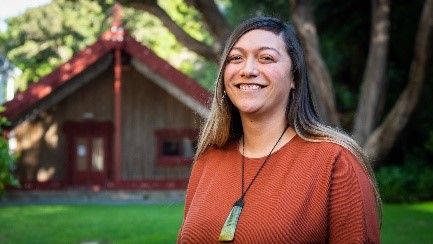 Alana has affiliations to Ngāti Porou and Te Whanau ā Apanui. She has completed the first year of clinical psychology training at VUW, but has deferred progressing while she completes a PhD under the supervision of Dr Awanui Te Huia.
Alana has affiliations to Ngāti Porou and Te Whanau ā Apanui. She has completed the first year of clinical psychology training at VUW, but has deferred progressing while she completes a PhD under the supervision of Dr Awanui Te Huia.
Alana’s research starts from the notion that colonisation, and perhaps the passage of time, has compromised the passing of cultural knowledge, including knowledge about spirituality (wairuatanga) and its importance within the Māori worldview. For young Māori, the future leaders, such deficits in knowledge are likely to be important as Māori continue to struggle for balance and health. With these concerns in mind Alana’s research explores, (a) how wairuatanga and hauora are understood by rangatahi Māori, (b) how rangatahi Māori practice caring for their wairua, and (c) what role rangatahi Māori see for health professionals in conversations about wairua.
It is Alana’s hope that a better understanding of wairuatanga will help connect rangatahi Māori with their Māoritanga, enabling Māori to flourish, resulting in true wellbeing.
 Carrie (Waitaha, Kāti Māmoe, Kāi Tahu) is enrolled at the Otago University where she is completing a PhD exploring the connection between pūrākau and wellbeing, specifically the use of pūrākau in mental health settings when working with rangatahi.
Carrie (Waitaha, Kāti Māmoe, Kāi Tahu) is enrolled at the Otago University where she is completing a PhD exploring the connection between pūrākau and wellbeing, specifically the use of pūrākau in mental health settings when working with rangatahi.
 Logan (Ngāti Rangi, Ngāti Tui-o-nuku) is enrolled at the University of Auckland where he is completing a D.ClinPsy exploring the ways in which rangatahi tāne Māori construct their identities and navigate social worlds within Tāmaki Makaurau.
Logan (Ngāti Rangi, Ngāti Tui-o-nuku) is enrolled at the University of Auckland where he is completing a D.ClinPsy exploring the ways in which rangatahi tāne Māori construct their identities and navigate social worlds within Tāmaki Makaurau.
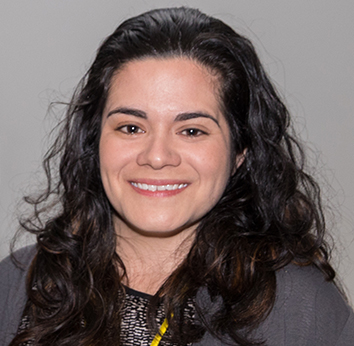 The Society offers the Karahipi Tumuaki President’s Scholarship which recognises research that is Māori centred and of value to the Māori community.
The Society offers the Karahipi Tumuaki President’s Scholarship which recognises research that is Māori centred and of value to the Māori community.
This scholarship was awarded in 2018 to Karis Knight. Karis is enrolled in a DClinPsy at The University of Auckland.Her iwi and hapu affiliations are iwi: Ngāti Porou; Hapu: Te Whānau-a-Ruataupare.
Karis has delved into the exciting and under-researched area of Māori emotions; particularly whakamā (shame, embarrassment) and how Māori understand and experience whakamā as a mātauranga Māori (Māori knowledge) construct of psychological distress. Māori concepts of emotions and their presentation is a growing area in kaupapa Māori research, in particular as a way of addressing the effects of intergenerational and historic trauma on mental health. Positioned within a kaupapa Māori framework the research also seeks to utilise Māori ways of knowing to deconstruct western assumptions of what it means to experience whakamā and its consequences. Her method includes in-depth interviews with Māori mental health professionals and Māori consumers. Karis hopes to provide new knowledge for community services and clinicians about how to support and whakamana (enhancing dignity).
 Miriama is enrolled in a PhD degree, having already completed clinical training. She is a registered psychologist, working at Dunedin hospital. Miriama’s research is focussed on exploring the applicability of a mindfulness- based intervention on the cortisol levels of Māori women who experience chronic stress and have had adverse life events in childhood. Her aim is to explore the relationship between childhood trauma and health problems in adulthood.
Miriama is enrolled in a PhD degree, having already completed clinical training. She is a registered psychologist, working at Dunedin hospital. Miriama’s research is focussed on exploring the applicability of a mindfulness- based intervention on the cortisol levels of Māori women who experience chronic stress and have had adverse life events in childhood. Her aim is to explore the relationship between childhood trauma and health problems in adulthood.
Miriama’s research offers a unique opportunity to consider how a culturally adapted mindfulness-based stress reduction programme can be used to alleviate chronic health problems. It is noted that Māori experience high levels of health problems, and this research could assist in providing an alternative to cognitive behavioural therapies.
 Jessica Gerbic’s research aims to explore how young Māori women cope with motherhood in a rural setting. Her research will challenge deficit models of Māori and of teenaged mothers and will instead adopt a strength-based approach to understanding their experiences. She will use a Kaupapa Māori methodology, working closely with the local communities within which the research is located. President Dr Kerry Gibson noted that Jessica’s research has the potential to challenge stigmatised views of young Māori mothers, to empower young women in this position and to help services to develop a better understanding of the needs of this group. It is expected that Jessica’s research will have important implications for the way that teenaged Māori mothers are viewed and treated in Aotearoa New Zealand.
Jessica Gerbic’s research aims to explore how young Māori women cope with motherhood in a rural setting. Her research will challenge deficit models of Māori and of teenaged mothers and will instead adopt a strength-based approach to understanding their experiences. She will use a Kaupapa Māori methodology, working closely with the local communities within which the research is located. President Dr Kerry Gibson noted that Jessica’s research has the potential to challenge stigmatised views of young Māori mothers, to empower young women in this position and to help services to develop a better understanding of the needs of this group. It is expected that Jessica’s research will have important implications for the way that teenaged Māori mothers are viewed and treated in Aotearoa New Zealand.
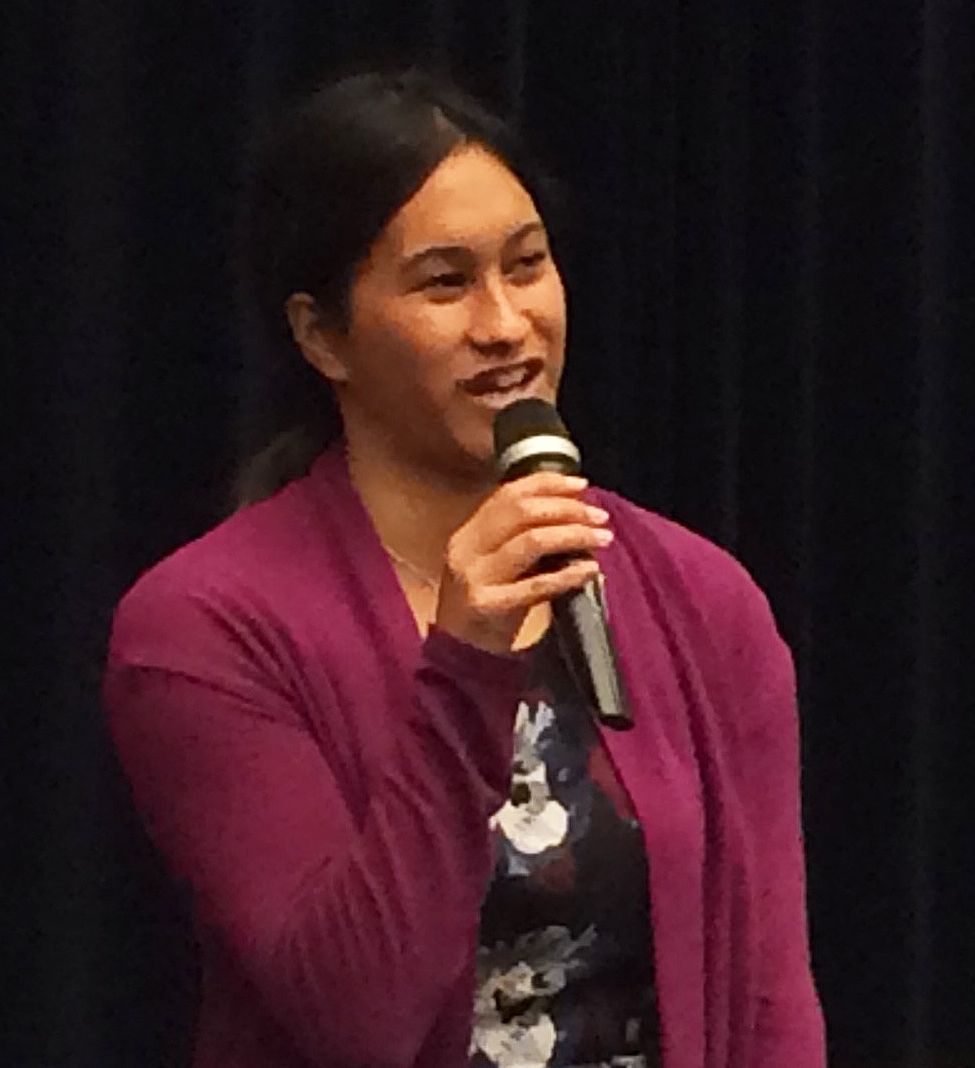 Stacey Mariu Ruru was presented with the Karahipi Tumuaki –President’s Scholarship at the NZPsS Conference in Hamilton. This award recognises research that is Māori centered and of value to the Māori community. The research proposed by Stacey Mariu Ruru to ‘explore Māori womens’ perspectives of leadership and wellbeing, to identify Māori practices and values that Māori women implement within their leadership roles, is very relevant to both Māori and to the discipline of psychology. This research will provide narrative evidence of some of the themes that Māori women in leadership roles draw on to understand and carry out their roles. The particular emphasis on the wellbeing practices Māori women leaders use will add to an understanding of possible habits and customs psychologists may wish to employ in leadership roles. Stacey shows a willingness to engage with kaupapa Maori/indigenous research designs using qualitative research methods to develop her knowledge and skills as a researcher. The research has an overall empowerment focus for Maori women in leadership roles. President, Dr Kerry Gibson wished Stacey well with her research and noted that we look forward to hearing more about her work in future years.
Stacey Mariu Ruru was presented with the Karahipi Tumuaki –President’s Scholarship at the NZPsS Conference in Hamilton. This award recognises research that is Māori centered and of value to the Māori community. The research proposed by Stacey Mariu Ruru to ‘explore Māori womens’ perspectives of leadership and wellbeing, to identify Māori practices and values that Māori women implement within their leadership roles, is very relevant to both Māori and to the discipline of psychology. This research will provide narrative evidence of some of the themes that Māori women in leadership roles draw on to understand and carry out their roles. The particular emphasis on the wellbeing practices Māori women leaders use will add to an understanding of possible habits and customs psychologists may wish to employ in leadership roles. Stacey shows a willingness to engage with kaupapa Maori/indigenous research designs using qualitative research methods to develop her knowledge and skills as a researcher. The research has an overall empowerment focus for Maori women in leadership roles. President, Dr Kerry Gibson wished Stacey well with her research and noted that we look forward to hearing more about her work in future years.
 Mihiroa Gillies was awarded the Karahipi Tumuaki- President’s Scholarship for her research which aims to provide information about factors which may contribute to the higher prevalence rates of mental disorders amongst Māori adolescents than their non-Māori counterparts. In particular Mihiroa’s research aims to explore the nature of this descrepancy, examining the role of cultural identity, social disadvantage and childhood adversity in adolescent mental health. This research is utilising data gathered on mental health and cultural identification, socio-economic factors and childhood adversity as part of the longitudinal study of a New Zealand birth cohort – the University of Otago’s Christchurch Health and Development Study and is based on 1265 young people – aged 15-18. President of the Society, Dr Kerry Gibson in presenting the award congratulated Mihiroa on selecting a research topic which is relevant and important to Māori and wished her every success in completing her research.
Mihiroa Gillies was awarded the Karahipi Tumuaki- President’s Scholarship for her research which aims to provide information about factors which may contribute to the higher prevalence rates of mental disorders amongst Māori adolescents than their non-Māori counterparts. In particular Mihiroa’s research aims to explore the nature of this descrepancy, examining the role of cultural identity, social disadvantage and childhood adversity in adolescent mental health. This research is utilising data gathered on mental health and cultural identification, socio-economic factors and childhood adversity as part of the longitudinal study of a New Zealand birth cohort – the University of Otago’s Christchurch Health and Development Study and is based on 1265 young people – aged 15-18. President of the Society, Dr Kerry Gibson in presenting the award congratulated Mihiroa on selecting a research topic which is relevant and important to Māori and wished her every success in completing her research.
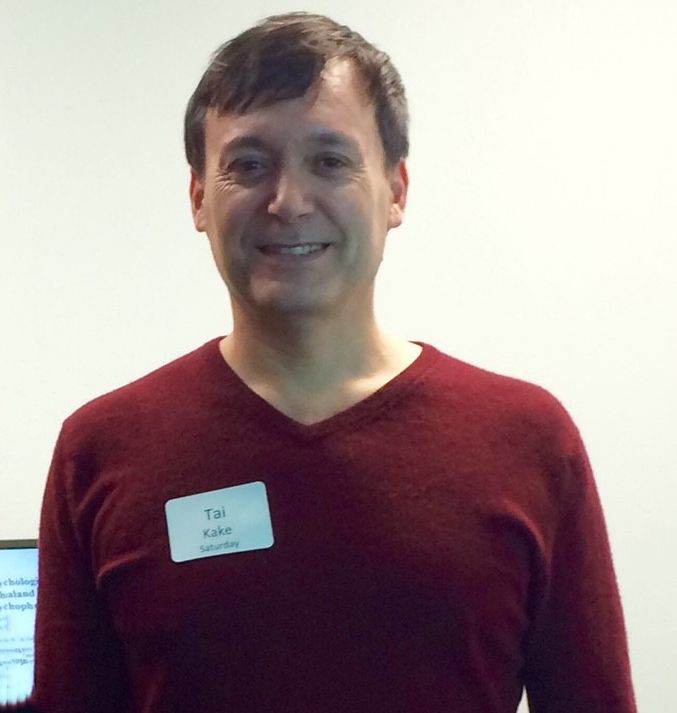 Dr Tai Kake was awarded the Karahipi Tumuaki- President’s Scholarship for his excellent research on Māori mental health. Tai’s research focuses on cognitive impairment in Māori diagnosed with schizophrenia. The research conveys a strong Kaupapa Māori research approach and was informed by cognitive neuropsychological models of cognitive impairment in schizophrenia. This important research topic was carried out in a methodologically sound manner and was supported by a thorough consultation process with Māori. Tai’s involvement with his subjects was based upon Māori protocol. Tai’s research formed part of his PhD and he is looking to publish the results in the near future.
Dr Tai Kake was awarded the Karahipi Tumuaki- President’s Scholarship for his excellent research on Māori mental health. Tai’s research focuses on cognitive impairment in Māori diagnosed with schizophrenia. The research conveys a strong Kaupapa Māori research approach and was informed by cognitive neuropsychological models of cognitive impairment in schizophrenia. This important research topic was carried out in a methodologically sound manner and was supported by a thorough consultation process with Māori. Tai’s involvement with his subjects was based upon Māori protocol. Tai’s research formed part of his PhD and he is looking to publish the results in the near future.
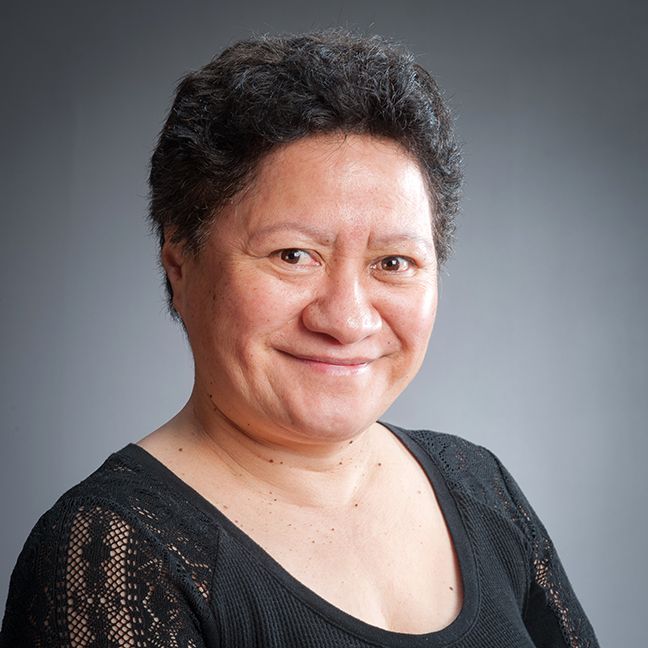 The President’s scholarship of $2000 is awarded to Māori postgraduate students who are active in the Māori community and who are enrolled for a degree requiring a piece of research for either a Masters or higher level post-graduate degree in psychology. The research must be Maori-centred and related to the betterment of the Māori community. The award was conferred on Tia Neha.
The President’s scholarship of $2000 is awarded to Māori postgraduate students who are active in the Māori community and who are enrolled for a degree requiring a piece of research for either a Masters or higher level post-graduate degree in psychology. The research must be Maori-centred and related to the betterment of the Māori community. The award was conferred on Tia Neha.
Tia Neha is enrolled for a PhD at the University of Otago and is focusing on the role of family oral traditions, autobiographical memories and whether or not these factors link to Māori children’s learning, specifically literacy and numeracy achievements.
President, Frank O’Connor noted that Tia was a very worthy recipient of the scholarship Her research employs a mātauranga Māori methodology and aimed to develop an understanding of the ways in which Māori children learn and attain skills in the cultural environment they are raised in and how that learning relates to their achievements in the classroom. Tia has a background in education, has been the first author of two publications, has contributed to a number of others and has an extensive list of presentations related to her research.
Other bursaries and scholarships
Click on Te Rau Ora to learn about a range of bursaries and scholarships being offered.
Click on Takoa for information on bursaries and scholarships
Click on Le Va-Pasifika for information on mental health and addiction scholarships supporting mental health services for Pacific people
Publications
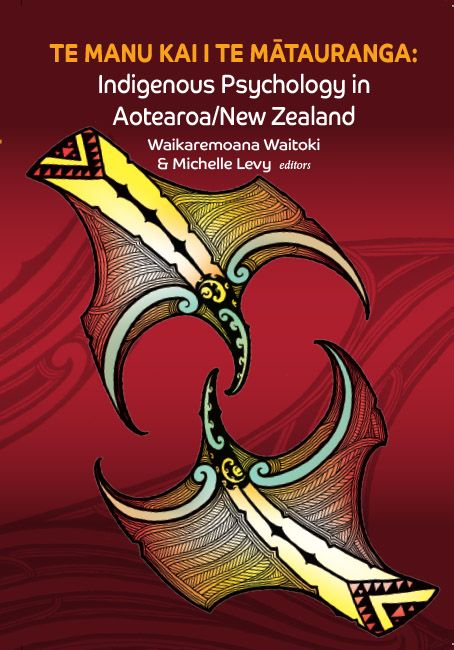 Te Manu Kai i Te Mātauranga: Indigenous Psychology in Aotearoa/New Zealand. Edited by Waikaremoana W. Waitoki & Michelle Levy.
Te Manu Kai i Te Mātauranga: Indigenous Psychology in Aotearoa/New Zealand. Edited by Waikaremoana W. Waitoki & Michelle Levy.
This ground-breaking book brings together the work of 18 Māori psychologists. Linked by a central story, each author offers insights into how they work with Māori when they start from positions of hope, cultural contexts, and culturally significant essentials. Including a diverse range of expertise, topics covered include Kaupapa Māori psychology, community psychology, mental health, drug and alcohol, neuropsychology, family violence, educational psychology and child and adolescent psychology.
ISBN 978-0-473-34545-7, New Zealand Psychological Society, Wellington, New Zealand (2016); 16 chapters, 300 pages, soft back cover
This book can be ordered and paid online in the Book Store.
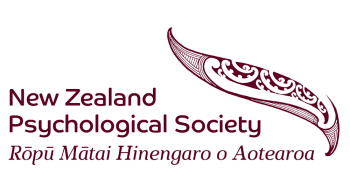
 Te Manu Kai i Te Mātauranga: Indigenous Psychology in Aotearoa/New Zealand. Edited by Waikaremoana W. Waitoki & Michelle Levy.
Te Manu Kai i Te Mātauranga: Indigenous Psychology in Aotearoa/New Zealand. Edited by Waikaremoana W. Waitoki & Michelle Levy.